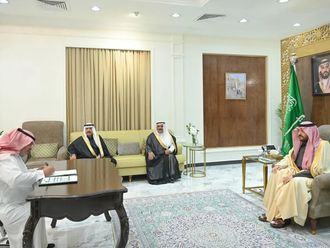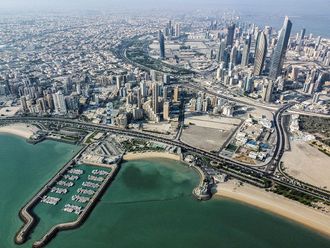Manama: The Warsaw Conference “to promote a future of peace and security in the Middle East” will open on Wednesday amid an international mixture of renewed hope and harsh criticism.
The two-day ministerial conference had drawn cheers and jeers since it was announced last month and the US has been going to great lengths to explain its objectives to those who had expressed concerns about Washington building a new coalition and about its hardline approach towards Iran.
“It’s important to underscore that this is not an anti-Iran meeting or coalition-building exercise,” one US official was quoted as saying. However, the US official told reporters in late January the conference would “certainly discuss concerns regarding Iran’s destructive policies in the region” because “it’s difficult to talk about the region’s challenges without referencing Iran”.
The clarification was made after the US said the conference would focus on “the stability of the Middle East and peace, freedom and security in the region, and ... an important element is to make sure Iran does not exercise destabilising influence.”
Jared Kushner and Jason Greenblatt, advisers to President Donald Trump and men responsible for drawing up a peace plan between Palestinians and Israelis, are expected to use the conference to discuss the “Deal of the Century”, which is according to some leaked reports is now ready, although its finer details will be revealed after the general elections in Israel in April.
The Warsaw Conference with its representatives from more than 40 countries is seen as an appropriate venue to promote the long-awaited US peace proposal for the Middle East internationally.
However, the Palestinians will not be attending after they declined the invitation and preferred to send delegations from various factions to Moscow instead for two days of talks.
Russia has declined to attend the Warsaw Conference, too.
On Saturday, Palestinian President Mahmoud Abbas’ Fatah movement warned the “Warsaw conspiracy aims at liquidating the Palestinian cause and is an American-Israeli attempt to pass the deal of shame,” said Osama Qawasmi, Fatah Revolutionary Council spokesperson, said. “The only party delegated to speak on behalf of our Palestinian people is the PLO and we will not and did not delegate any other party to speak on our behalf.”
The PLO has severed all contacts with the US administration since its recognition of occupied Jerusalem as Israel’s capital in December 2017, closed the PLO office in Washington and cut all aid to the Palestinians, he added.
On Thursday, the Palestinian Foreign Ministry said the Conference “is an American conspiracy intended to get the participants to adopt the US views on issues of the region, particularly the Palestine question.”
In Tehran, Iranian officials lashed out at the “anti-Iran conference”, saying that it “meant the failure of the toughest sanctions policy in history and signalled deficits and despair.”
Secretary of the Iranian National Security Council Ali Shamkhani said the US call for an international conference against Iran would end in failure.
“Whoever says imposing the most severe sanctions and then resort to holding a symposium and a conference means that it is a failure and failure in his command.”
Iranian Foreign Minister Mohammad Javad Zarif posted on Twitter the conference was “an expression of political despair”.
However, in Bahrain, Fatima Abdul Khalil, a political columnist, said the conference indicated that the US administration was serious in reassuring its regional allies and would not allow Tehran to threaten the national security of countries with which Washington has strategic relations.
US officials last week said Kushner and Greenblatt would visit the Middle East later this month with stops in Oman, Bahrain, Saudi Arabia, the UAE and Qatar on their weeklong trip. Two more countries may be added to their itinerary to brief the countries on the economic portion of the deal.











